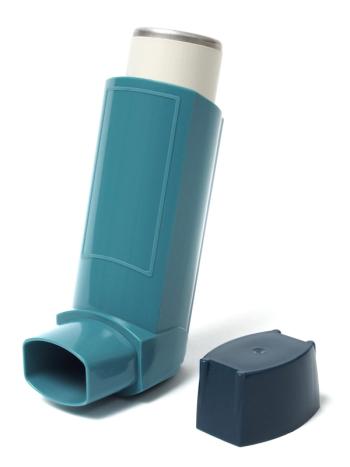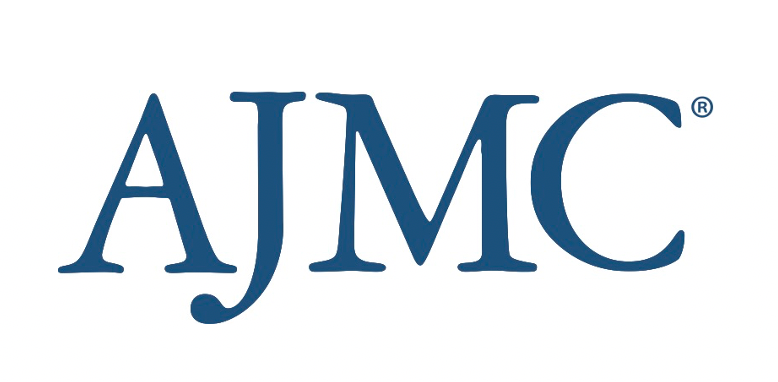
Health Care Cost
Latest News

Latest Videos
CME Content
More News

Judy Alberto, MHA, RPh, BCOP, director of clinical initiatives at the Community Oncology Alliance (COA), addresses the challenges pharmacies face in managing formularies to provide optimal patient care.

After moderating the panel discussion at The American Journal of Managed Care®’s Institute for Value-Based Medicine® (IVBM) event held in partnership with Banner|Aetna, Sandra Stein, MD, chief medical officer of Banner Health Plans, shared her key takeaway.

Enhancing coordination of care has the potential to increase the value of heart failure care.

Medication nonadherence among patients with chronic obstructive pulmonary disease (COPD) is associated with increasing COPD symptoms, hospitalizations, morbidity, mortality, and health care expenditures.

Pat Van Burkleo, executive director of Feeding Louisiana, shares the key topics addressed during the Ochsner Health IVBM panel discussion on initiatives to increase food access in communities across the state.

Average prices are substantially higher but rates of complications are similar in hospital-based vs freestanding surgery centers for colonoscopy, arthroscopy, and cataract removal surgery.

Ibrutinib has been selected for Medicare price negotiation under the Inflation Reduction Act. The authors summarize the House Oversight Committee investigation to be considered by CMS during the price negotiation process.

The Center on Health Equity and Access shares up-to-date news, research progress, and ongoing initiatives dedicated to tackling health care disparities and enhancing overall access to quality care.

CMS released a final rule to help patients obtain Children’s Health Insurance Program (CHIP) coverage and issued a proposed rule to update Medicare payment policies and rates for inpatient rehabilitation facilities; debate over if gift card incentives are acceptable in health care marketing.

In this interview, Pat Van Burkleo, the executive director of Feeding Louisiana, the Louisiana Food Bank Association, discusses the outreach dynamics of the organization and food banks.

A presentation at the Greater Philadelphia Business Coalition on Health's 2024 Women’s Health Summit discussed how payers, including employers and public entities, can strategically influence health care purchasing to prioritize maternal health and equity.

Flat funding for HHS leaves critical health initiatives stagnant; Supreme Court weighs tightening regulations on abortion pill; manufacturing delay sparks access concerns for insulin medication.

The Center on Health Equity and Access covered disparities in hypertension, diabetic eye health, and hidradenitis suppurativa, along with the proposed legislation banning diversity, equity, and inclusion efforts in Alabama schools and the consequences in sickle cell care from the CDC guideline for opioid prescriptions.

Robert Groves, MD, executive vice president and chief medical officer, Banner|Aetna, discussed whether health systems should invest in social determinants of health.

CMS is highly likely to negotiate the price of the obesity medication semaglutide in the coming years; many health care providers are trying to determine whether their cyberattack insurance will help cover their losses after the Change Healthcare hack; the US life expectancy increased for the first time in 2 years.

This poster reported that photoprotection management of lupus is unaffordable for some patients, which may have an impact on sunscreen application frequency.

Physician-scientists play a vital role in bridging research and clinical practice, and ensuring diversity among them has emerged as a critical factor for fostering biomedical innovation and achieving equitable health care.

For more than a decade, certain high-value preventive care services have been covered at no cost to patients under the Affordable Care Act, but a current legal challenge has the coverage at risk.

The approval makes atidarsagene autotemcel (arsa-cel [Lenmeldy]; Orchard Therapeutics) the first approved treatment for metachromatic leukodystrophy, a disease caused by a mutation in the ARSA gene and marked by progressive declines in both the central and peripheral nervous systems.

AstraZeneca joins efforts to address high drug prices by capping out-of-pocket costs for its inhalers; Opill, the first OTC birth control pill, is now accessible through online sales; expansion prompts questions on the effectiveness and regulation of remote monitoring technology.

This week, the Center on Health Equity and Access highlighted expert opinions on a mental health paradigm shift in the workplace, the impact health care algorithms can have on patient outcomes, and social factors linked with hidradenitis suppurativa severity, in addition to addressing the health needs of justice-involved populations.

The fiscal 2025 budget will prioritize investments in rapid tests and antimicrobial drugs; women who were pregnant as teenagers are more likely to die before 31 years; leaders push for reform as part of spending bill for federal health agencies.

In this interview, Pat Van Burkleo, executive director of Feeding Louisiana, explains why food access initiatives are a top priority.

Since 2016, 5 targeted treatments have received accelerated approval from the FDA for use in Duchenne muscular dystrophy (DMD), and the total spend for just 3 of them is $3.1 billion.

After years of efforts to reduce low-value care, panelists at the 2024 Value-Based Insurance Design Summit proposed a new strategy: drawing a line in the sand that payers will not be on the hook for these services.















